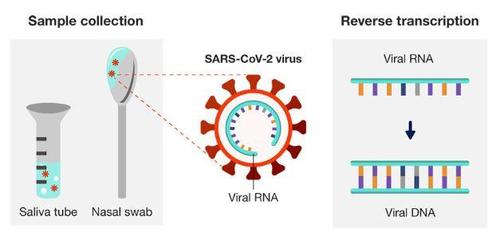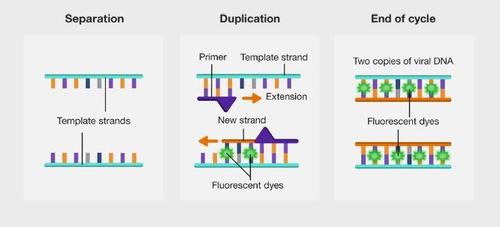
Are PCR tests only designed to study DNA samples, making the tool unsuitable to show whether an infectious disease is present? No, that's not true: the tests search for a match to the RNA/DNA of an infectious disease. While scientists report that the tests sometimes return false positive and false negative results, the tests are regarded as effective.
The claim originated from a video (archived here) where it was published by TikTok on 7 September, 2023, with no video title. The video opens with a picture Kary Mullis, the inventor of the PCR test, alongside text made to look like a quote from Mullis. Lead Stories staff have translated the "quote" from Croatian to English:
The PCR test is NOT a diagnostic tool and is designed for detailed study of DNA samples. Accordingly, it CANNOT be used for the diagnosis of infectious diseases.
Lead Stories has not been able to find any reference to Kary Mullis ever saying these words.
This is what the post looked like on TikTok at the time of writing:
(Source: TikTok screenshot taken on Sat Sep 9 10:59:39 2023 UTC)
In 1993 American biochemist Kary Mullis won the Nobel Prize in Chemistry for his invention of the polymerase chain reaction (PCR) method.
PCR tests work by taking the single-stranded genetic material (RNA) of a virus or infectious disease which is then converted into double-stranded DNA. The virus' DNA is then separated again, an enzyme primer is added plus a fluorescent dye. When a test is taken, if the DNA of the sample matches the DNA being tested for then the dye will indicate the presence of the virus or infectious disease.
(Source: National Human Genome Research Institute screenshot taken on Sat Sep 9 12:03:20 2023 UTC)
(Source: National Human Genome Research Institute screenshot taken on Sat Sep 9 12:04:04 2023 UTC)
According to the Genomics Education Programme:
PCR is a useful technique for the identification of infectious pathogens such as tuberculosis. It can also be used to test whether the infectious organism has any genomic variants that make it resistant to specific antibiotics. In these cases, it is integral to speeding up diagnosis and treatment.
The American Society for Microbiology says:
PCR tests are the gold standard for COVID-19 diagnosis, but they're not always accurate.
In terms of putting a figure on the accuracy, the UK Government Office for Science says:
The RT-PCR assays used for the UK's COVID-19 testing programme have been verified by PHE [Public Health England], and show over 95% sensitivity and specificity. This means that under laboratory conditions, these RT-PCR tests should never show more than 5% false positives or 5% false negatives.
Researchers who analyzed 16 studies that looked into PCR test accuracy estimated a sensitivity rate of 87.8%.
Although PCR tests are not 100% accurate, it is misleading for the video's creator to claim that PCR tests are "not a diagnostic tool" or that the tests "cannot be used for the diagnosis of infectious diseases". PCR tests have been used for decades to indicate the presence of viruses and infectious diseases. Doctors also use multiple different tests to confirm a diagnosis.











